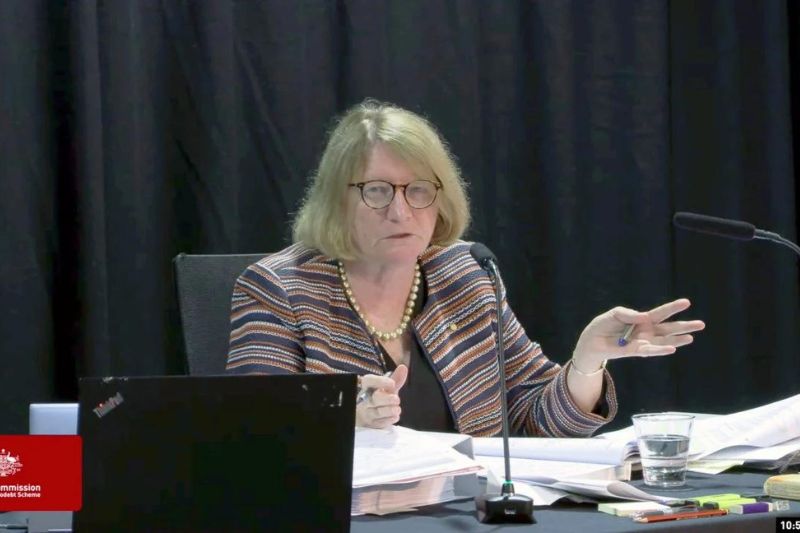Robodebt, long since stripped of its license, has now been ceremonially dumped. After the Royal Commission, most attention has turned to its previous owners. More important, however, is the culture that shaped its behaviour and made its mayhem seem acceptable. That issue takes us beyond the legality of Robodebt to its morality, and raises wider questions about the relationship between ethics and law in government and society.

Another court judgment in the same week that the Royal Commission was handed down also posed the same questions. Mostafa Azimitabar, a musician from Kurdistan who had sought protection from Australia claimed damages from the Government for his prolonged detention in hotels. After his return from Manus Island to Australia because of physical and mental illness, he had been held in detention. Justice Bernard Murphy rejected his claim on the grounds that detention in hotels for a long time was in accordance with Australian law. The judge explained:
The decision in this case does not turn on the humanity of the applicant’s detention, it is about whether the minister had power under the act to approve hotels as places of immigration detention. The minister had, and has, the power to do so.
Justice Murphy, however, added:
I can only wonder of the lack of thought, indeed the lack of care and humanity, in detaining a person with psychiatric and psychological problems in the hotels [for] 14 months, primarily, in hotel rooms with windows that only opened 10 centimetres and for most of the time, without access to an outdoor area or to breathe fresh air or feel the sun on his face… As a matter of ordinary human decency, the applicant should not have been detained for such a period of time in those conditions.
The judge here draws a clear distinction between his judgment that the treatment of Mr Azimitabar was legal, and his personal conviction that the treatment was unethical (indecent). In the Report on the Royal Commission into Robodebt, Catherine Holmes also offers both an ethical and a legal judgment. She confirms the view that the scheme was from the beginning illegal and criticises the Ministers and public servants who disregarded evidence of its illegality. In her Report, however, she focuses on the suffering and humiliation suffered by the victims of Robodebt. This leads her to reflect on its ethical character. She writes,
There are different mindsets one can adopt in relation to social welfare policy.
One is to recognise that many citizens will at different times in their lives need income support — on a temporary basis for some as they study or look for work; longer term for others, for reasons of age, disadvantage or disability — and to provide that support willingly, adequately and with respect.
An alternative approach is to regard those in receipt of social security benefits as a drag on the national economy, an entry on the debit side of the budget to be reduced by any means available: by casting recipients as a burden on the taxpayer, by making onerous requirements of those who are claiming or have claimed benefit, by minimising the availability of assistance from departmental staff, by clawing back benefits whether justly or not, and by generally making the condition of the social security recipient unpleasant and undesirable. The Robodebt scheme exemplifies the latter.
Her ethical reflections on the blindness to the suffering of people illegally and wrongly found to be in debt, demonised by politicians and friendly journalists, and harried by revenue collectors echoes Justice Murphy’s criticism of prolonged hotel detention and its disregard for the humanity of those afflicted by it. She found Robodebt to be both illegal and unethical, whereas Murphy found prolonged hotel detention to be legal but unethical.
This criticism by judges of the ethical foundations of laws passed by governments and of the policies that they embody is deeply concerning. Both Holmes and Murphy based their criticism on the ethical responsibility of citizens and governments to respect the human dignity of the people whom its laws affect. That this should be ignored and indeed systematically disregarded in their policy making and administration by Ministers and Public Servants is alarming. Yet it echoes a similar insouciance in the larger society about the treatment of unfavoured persons.
In both Robodebt and in hotel detention vulnerable persons were not respected but treated as a means to an end – to cut social welfare spending and to deter would-be asylum seekers respectively. In both cases those so used were vilified by Government Ministers and public servants. People on benefits were described as cheats and bludgers, and people who seek protection as illegals, queue jumpers or Muslims. Such denigration served two purposes: to allay public concern and to provide self-justification to those responsible for the programs.
The regular success of such campaigns suggests that change to laws will do little unless it is accompanied by ethical conversion. People need to see strangers as precious beyond their views or their usefulness. The working ethic of our culture, and hence of government and the public service, is instrumental. Good ends are taken to justify bad means. The strictures of Bernard Murphy and Catherine Holmes challenge both politicians and public servants and will not be welcomed by them. If they were to be heard and responded to, think of the massive change they would bring to other policies that rely on treating people inhumanely. Think, too, of politicians if deprived of the dog whistle and the xenophobic slight.
.png)
If they are not accepted, however, think of the effect on society of routine declarations by Judges that the laws that govern their decisions are legal but unjust. It is up to us to reward ethical behaviour in our politicians, political journalists and public servants and to protest against its absence.
Andrew Hamilton is consulting editor of Eureka Street, and writer at Jesuit Social Services.
Main image: Royal commissioner Catherine Holmes.